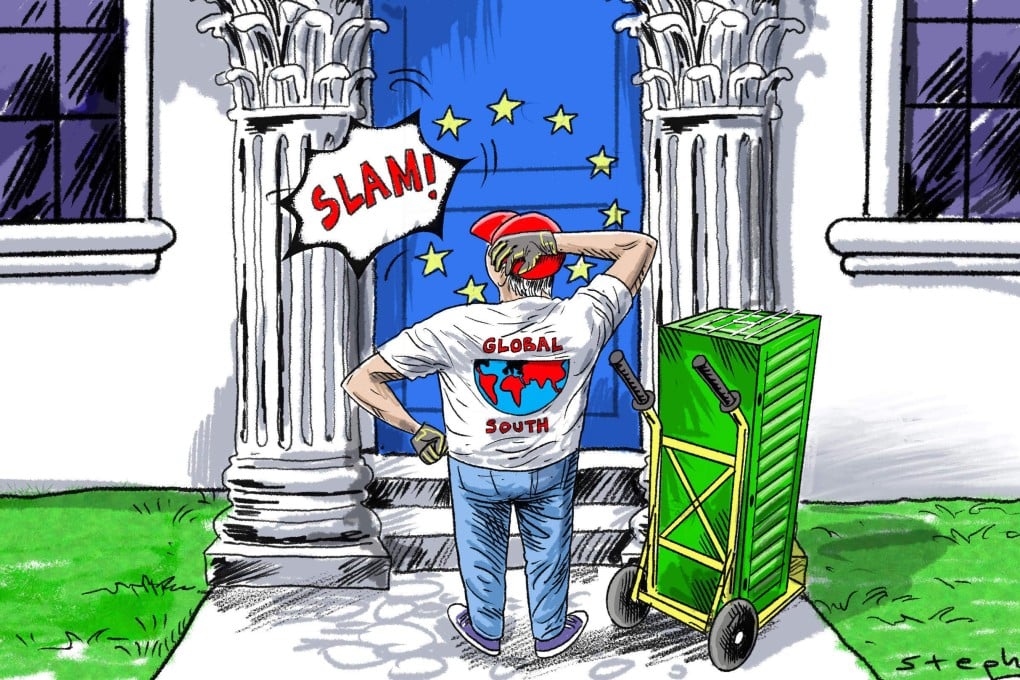Advertisement
Opinion | US and EU trade barriers not only hurt China, they also derail climate action
- Europe’s carbon border tax is shifting the burden to poorer nations while the West’s redrawing of supply chains is preventing China from cheaply and efficiently supplying the global green transition
Reading Time:4 minutes
Why you can trust SCMP
3

As the world tackles climate change with a heightened sense of urgency and renewed determination following the Cop28 United Nations climate conference in Dubai, it is critically important for nations to guard against restrictive trade measures.
Seemingly unrelated and thus often treated as a separate issue, trade restrictions can significantly affect global climate goals and threaten to derail the transition to a greener economy.
An example of this is the European Union’s carbon border tax, which came under heavy fire at Cop28 from developing countries. Intended to protect the European domestic industry, the measure requires that the difference between the carbon price of the product in the EU and that in the country it is being imported from has to be paid.
Advertisement
Viewed as discriminatory by BASIC, a grouping that includes Brazil, South Africa, India and China, the EU’s border tax will work to deter carbon-intensive imports, such as aluminium and steel.
BASIC sees the tax, and rightly so, as opposed to the Paris Agreement’s principle of “common but differentiated responsibilities and respective capabilities”. This provides that while all countries are responsible for addressing global environmental destruction, the developed countries cumulatively responsible for the bulk of emissions are duty-bound to do more.
Advertisement
Advertisement
Select Voice
Select Speed
1.00x
